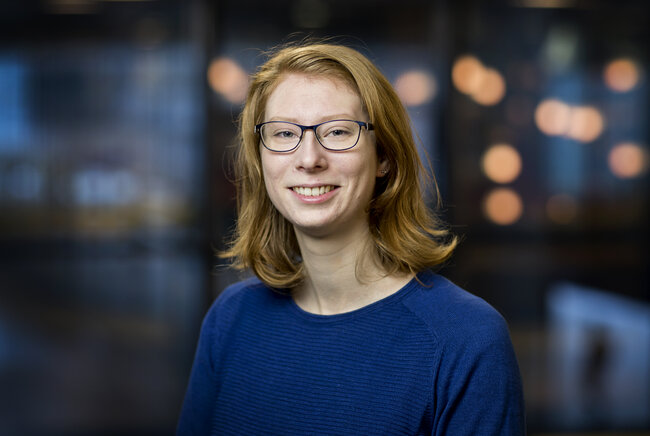Innovative back pain treatment with porcine notochordal cell tissue
Tara Schmitz defended her thesis at the Department of Biomedical Engineering on December 6.

Back pain, especially in the lower back, affects millions of people worldwide and degeneration of intervertebral discs is often identified as a possible cause. With her PhD research, Tara Schmitz showed, that notochord cells, a specific cell type in the intervertebral disc, may be exploited for regeneration of a degenerated disc.
The number of notochord cells decreases as people age, reducing the ability of intervertebral discs to repair themselves. Remarkably, some animals, such as pigs, retain these notochord cells throughout their lives, leading to this development of a potential treatment for intervertebral disc degeneration.
Identification of key features
With her research, Schmitz focused on identifying crucial characteristics and establishing a clinical translation for biomaterials suitable for use in intervertebral discs. Previous discoveries showed that tissue produced by porcine notochord cells is enriched in bioactive factors that are essential for maintaining a healthy intervertebral disc. These bioactive factors not only play a role in maintaining the structure of the disc, but they also offer the potential for regeneration.
One of the notable results of the research is the development of a new protocol for processing notochordal cell tissue from pigs, with the goal of making it safe for use in humans. This protocol opens the door to using notochord cell tissue as an injectable biomaterial, offering a promising treatment option for people suffering from intervertebral disc degeneration.
Mechanical repair and bioactive factors
To further improve the intervertebral disc repair process, Schmitz mixed the processed notochordal cell tissue with a polymer. She did this not only to mechanically repair the disc, but also to provide the disc with the bioactive factors inherent in the notochord cell tissue. This combined approach provides a versatile solution for the treatment of intervertebral disc degeneration, addressing both structure and regenerative capacity.
Besides the development of a treatment protocol, a new protocol for studying notochordal cells in the laboratory was also established. This paves the way for further experiments and research, allowing scientists to better understand the complex biology of notochord cells and their potential therapeutic applications.
Title of PhD thesis: “Notochordal cell-derived therapeutic approaches for intervertebral disc regeneration”
Supervisors: Keita Ito and Marianna Tryfonidou (Utrecht University)